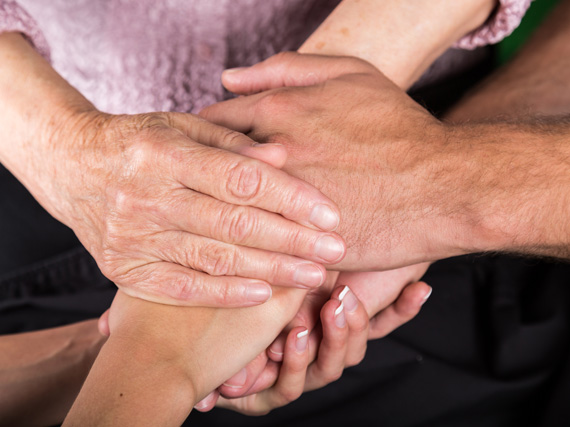When Vivienne was diagnosed with polycythemia vera (PV) in 2001, she read as much as she could and asked lots of questions about this little known blood condition, not yet classified as a blood cancer. What she found was that the prognosis for people living with PV at the time wasn’t very good.
But that didn’t defer her optimism. And today, more than two decades later, she continues to be a vocal proponent of keeping the disease in perspective.
“This is a chronic illness, not a death sentence,” says Vivienne. “Listen to your body, and with no judgment in it. Get enough good sleep, exercise, eat properly.”
Vivienne is clear that she never lets her PV get her down. She worked full time for many years and offers the advice that staying active, enjoying family and friends, and loving yourself are most important.
None of this is to say that she has not experienced her share of health challenges. Working closely with her doctors, and reading numerous articles, it was her desire to do “as little as possible for as long as possible.” After nearly 10 years, however, two major bleeding episodes resulted in the need to take medication to control her blood counts. She was on hydroxyurea for about four years and is now on ruxolitinib. She continues to receive phlebotomies every few months.
“I have been very fortunate to see great strides in our knowledge about MPNs,” says Vivienne. And she helped with some of that progress by participating in clinical trials along the way. “I gave blood for the study that found the genetic mutation which is carried by almost all PV patients (97%). I am JAK2 positive.”
She also told her story at the 2019 Patient-Focused Drug Development meeting for the Food and Drug Administration (FDA), organized by MPNRF to keep the MPN patient experience at the heart of the lengthy drug development process. And she took part in a one-year yoga and MPN study. “If I get fatigued now, I use what I learned about how to breath and stretch. I can do it in a chair – I meditate.”
She understands that each person responds to the illness in different ways. “I had a serious auto accident when I was 22 and every day is a blessing – so I am not afraid of death. I believe that it is all about the quality of life.”
Her initial advice to people living with an MPN is this: “Go to a university-level hematologist if at all possible, and take their advice. If you can go to an MPN specialist, do it − and work with your local doctor to implement their suggestions. Read all you can and be your own advocate. Join a support group. Mostly, don’t become obsessed by these illnesses.”
She adds, “Do not believe those who give you a time frame for your life. None of us knows when we will pass from this world.”
These represent first person accounts of real people living with Essential Thrombocythemia, Polycythemia Vera, and Myelofibrosis. It does not represent the views or opinions of anyone associated with MPN Research Foundation. Please consult your doctor before taking any action to manage your health.

